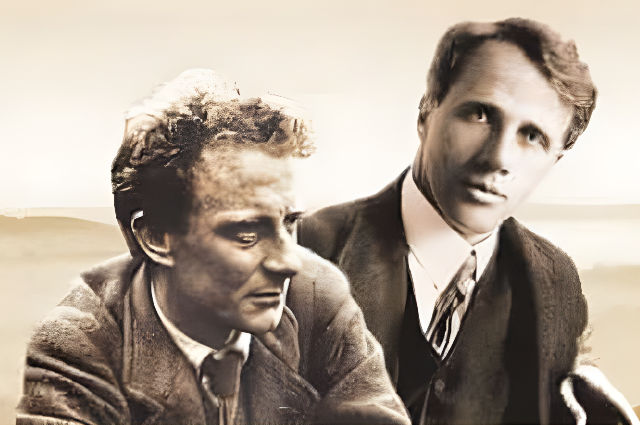In the jolting journey of life, one experiences a sudden turbulence or halt when they stand before what seems to be a "Cross road". One path is equally significant as the other, arising a conflict in the minds of the traveler. What would you do? Gather the courage to take a risk and dive into the unknown or comfortably follow the footsteps you see? That's how one sets the context of Robert Frost's most acclaimed piece of writing called, "The Road not Taken."
"You have to be careful of that one; it's a tricky poem - very tricky" - Robert Frost.
The beauty of art and poems lies in the fact that there is no one interpretation, it's meaning varies to every eye that reads and perceives them. Just like how water takes the shape of the vessel it is poured into, poems invoke different feelings in each; based on one's persona, experiences and perception. But when it comes to the poem of discussion or any in general, what one can't deny is the intention of the writer. While this poem stands on the pedestal as a messenger of taking the uncommon route and courage, Frost penned down this work as a quip on his dear friend – Edward Thomas’s funny habit to regret over the path he chose during their walks in England during the early 20th century. Witfully Frost mocked Edward on this but what came to his surprise was that Edward too couldn't see the resemblance and the intention of the 'joke' Frost cracked. After exchanging six letters the purpose was cleared and to this Thomas asserted that Frost carried himself and his ironies too subtly.
Edward Thomas was a British poet, essayist, novelist and Robert Frost's Close friend during his time in England. He fought bravely for his country during World War One but sadly met a premature death in the same. He was regarded as an anti nationalist. He wasn't patriotic, so much so that he once regarded that his real country men are not people but birds. So how did he represent England in the war?
Thomas once wrote in his journal,
"a sky of dark rough horizontal masses in N.W. with a 1/3 moon bright and almost orange low down clear of cloud and I thought of men east-ward seeing it at the same moment. It seems foolish to have loved England up to now without knowing it could perhaps be ravaged and I could and perhaps would do nothing to prevent it. Something, I felt, had to be done before I could look again composedly at the English landscape."
So while up to this point he had been indifferent to the politics behind the war, he now began to consider that it really didn't matter what the war was being fought over; if the land and all that was on it was directly threatened, it needed defending if it was to be preserved. He fought the thought of joining the army everyday and even considered moving to America to his friend Robert Frost. Thomas indeed stood in front of a cross road and what is claimed to be the last straw, was a draft that was delivered to his doorsteps in the early summer of 1915.
To: Edward Thomas
From: Robert Frost
Title: Two Roads.
And that’s how destiny made its way to Thomas and the supposedly friendly jab composed by Robert Frost. Though there is no concrete evidence that the poem provoked Thomas to enlist in the army, it must be cased that this 'funny' piece of literature surely made an impact on the 'war poet' and the writer of this article.

